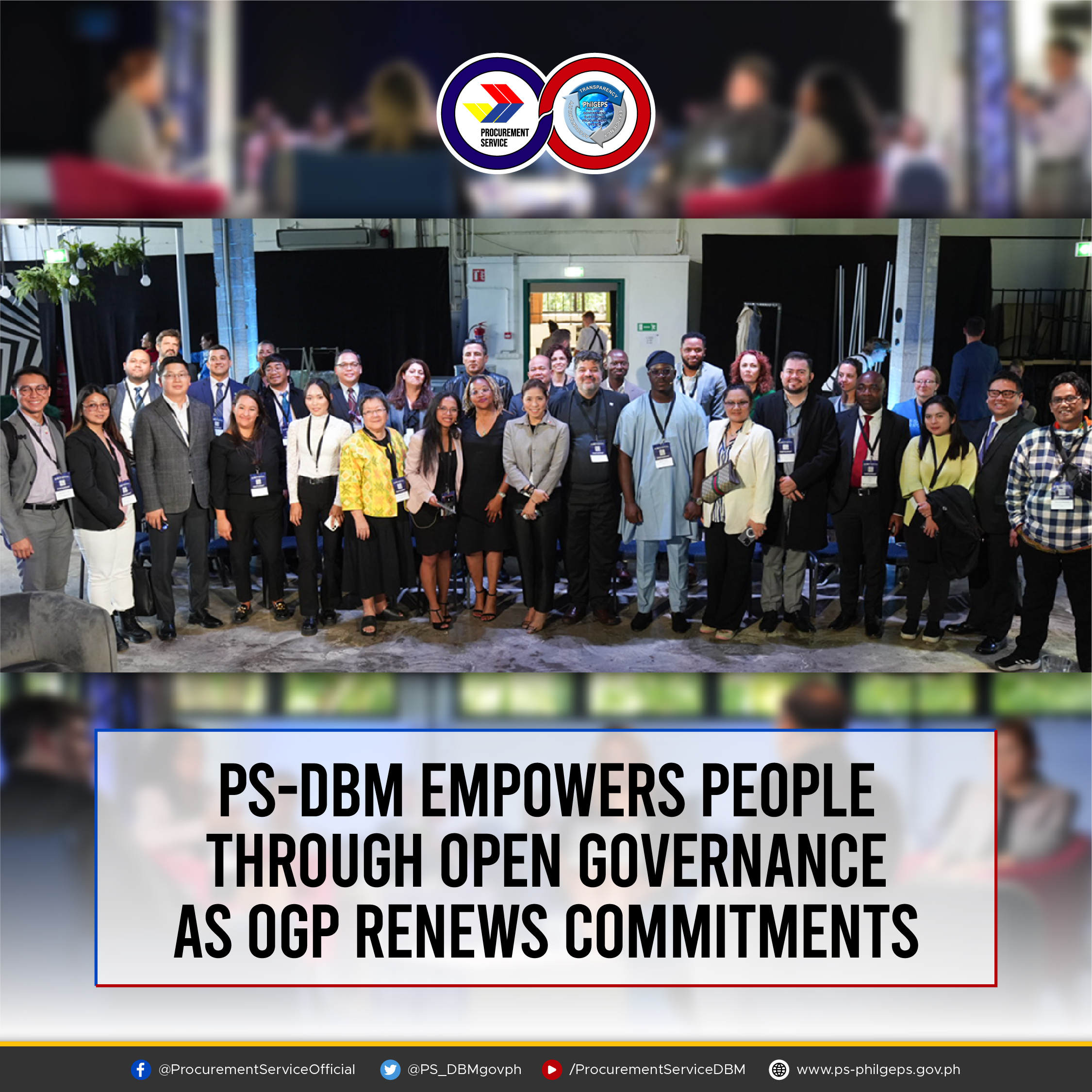
Established in 2011, the Open Government Partnership (OGP) has now entered its second decade of operations. Uniting more than 70 countries that represent more than two billion people, OGP ultimately aims to promote transparent, participatory, inclusive, and accountable governance — geared towards transforming how governments serve their citizens and consequently making a positive impact in their communities.
Established in 2011, the Open Government Partnership (OGP) has now entered its second decade of operations. Uniting more than 70 countries that represent more than two billion people, OGP ultimately aims to promote transparent, participatory, inclusive, and accountable governance — geared towards transforming how governments serve their citizens and consequently making a positive impact in their communities.
The 8th OGP Global Summit that was held from September 4 to 8, 2023, in Tallinn, Estonia, paid special attention to the potential and promise of new technologies in this age of digital transformation, among other equally relevant policy areas. The Programme, meanwhile, is based on OGP Strategy 2023-2028 — the preparation of which commenced in May 2022 and was finalized in March 2023.
In the Summit’s culmination, the Government of Estonia turned over the chairmanship of OGP to the Government of Kenya, continuing the realization of the organization’s thrust under a new leadership beginning October 1.
The Philippines, for its part, continues to introduce reforms on fiscal transparency and bureaucratic efficiency to ensure a people-centered economic development. As a manifestation of this, Executive Order No. 31 was issued on June 30, 2023, institutionalizing the PH-OGP. The country’s first-ever medium-term OGP National Action Plan is now also being developed.
In relation, Procurement Service - Department of Budget and Management (PS-DBM) Executive Director Dennis S. Santiago also became one of the pioneers of the Open Contracting Community of Practice in the Asia Pacific in March 2023, along with PS-DBM Director for Procurement Group Atty. Genmaries S. Entredicho-Caong, following their attendance at the Open Government Leadership Collaborative — another project of OGP. They now join other representatives from the Philippines, Indonesia, Mongolia, and Thailand in an ever-growing coalition of transformative leaders who advance the open government movement.
Another recent milestone is the Philippines' inclusion in the “outstanding teams” from around the world that earned the support of the Open Contracting Partnership (OCP) — through its program, Lift — which will provide PS-DBM with technical and financial support to advance procurement reforms in the country. Of the 150 proposals from 70 nations worldwide, the Philippines joins Brazil, Chile, Lithuania, Senegal, Thailand, Uganda, United Kingdom, and the United States in this year’s list of grantees.
The PS-DBM’s Philippine Government Electronic Procurement System (PhilGEPS), which serves as the single, centralized electronic procurement portal and is the primary and definitive source of information on government procurement, is constantly being modernized, too. Only this August, the PS-DBM trained pioneer agencies to utilize the portal’s eBidding facility — opening the procurement processes through online participation.
“The Philippine procurement system also had its share of controversies in the past. Thus, for this new Administration, we significantly advanced open contracting reforms and enriched participatory spaces for improved transparency and accountability in government procurement,” Secretary Pangandaman said in one of her talks.
She likewise said that with growing access to technology, there comes a greater need to reinforce trust and confidence in the government.
PS-DBM, following its participation in the Global Summit, renews its commitment to actively participate in OGP’s future events and activities to ensure the fulfillment of its mandate, that is, to operate a centralized procurement of Common-use Supplies and Equipment for the whole of Philippine Government with accountability, efficiency, integrity, and transparency.
